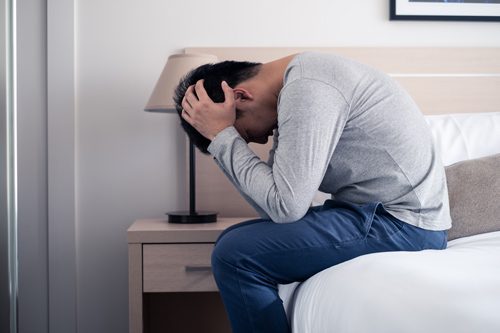For most people in recovery from an addiction to drugs or alcohol, maintaining their sobriety takes hard work every day. They want to avoid a possible relapse, but the potential is always there. In fact, 40-60% of people with substance use disorders will use again at least once. Although relapse is hard on a person and their loved ones, it does not mean that sobriety is impossible or that treatment did not work.
Learn the Warning Signs
Being aware of the warning signs of relapse can help you know when to seek out extra support. Relapse does not begin when a person uses a drug or takes a drink; it is a slow process that often begins weeks or months in advance. There are three stages of relapse:
- Emotional
- Mental
- Physical
Emotional Relapse
Usually, emotional relapse is the first stage of relapse. At this time, the individual is not thinking about drinking alcohol or using drugs. However, stress, difficult situations, and triggers are causing them to have negative thoughts and emotions. Although the person is aware of their feelings, they do not use the healthy coping skills they learned. They may try to avoid their feelings or escape them by turning to work or media or other distractions.
Signs include:
- Lack of self-care such as poor eating and sleeping habits, not exercising, or not attending therapy sessions
- Lack of a strong support system, not asking for help, or not attending meetings
- Isolation and avoidance
- Depression, loneliness, mood swings
- Anger and anxiety
- Defensiveness and intolerance
Often this stage occurs before the individual realizes they may be facing a potential setback.
Mental Relapse
Mental relapse typically follows or occurs along with emotional relapse. Because the person does not address their negative or difficult thoughts, emotions, or situations using healthy coping skills, they may start to think about using drugs or alcohol again. They think about how the drugs or alcohol would make them feel and the relief they would get. They continue to fantasize about how they would acquire the substance, how they would use it, and how it would make them feel. At this point, many people begin making a plan and lie to cover up their thoughts and feelings.
Signs include:
- Glamorizing or romanticizing their past substance use
- Thinking about people, places, and things associated with past use
- Hanging out with old friends that use and going to old hangouts
Physical Relapse
Physical relapse is when a person starts using drugs or drinking again. Usually, from the time they start thinking about or planning their relapse, it does not take long for it to occur. Once this occurs, it is critical to get the proper treatment as soon as possible.
The Difference Between a Slip & Relapse
Some addiction experts make a distinction between a slip and a relapse. They define a slip as an isolated, one-time mistake followed by a renewed commitment to sobriety. They define relapse as a near-complete or complete return to levels of use that are the same as pre-treatment. The person has stopped all efforts of recovery and returned to active addiction. Many people fall somewhere along a continuum between slip and relapse.
How a person perceives their using again has a role in how they will react. For example, if a person with an alcohol addiction believes a slip will lead them to an out-of-control drinking binge, that is most likely what will happen. On the other hand, if that person believes a slip is just a one-time occurrence, and they are honest with themselves and others, they can regain control and continue to heal.
Do You Need Help?
If you or a loved one is struggling with an alcohol or drug addiction or has relapsed, now is the time to get help. At Canyon Vista Recovery Center, located in Mesa, Arizona, our caring professionals will use a combination of medical, clinical, psychiatric, and holistic approaches to help heal your body, mind, and spirit. If you are returning to treatment after a relapse, we will help you reevaluate your treatment plan and adjust it to better fit your needs. Call us today, and take the first step on the road to recovery.





